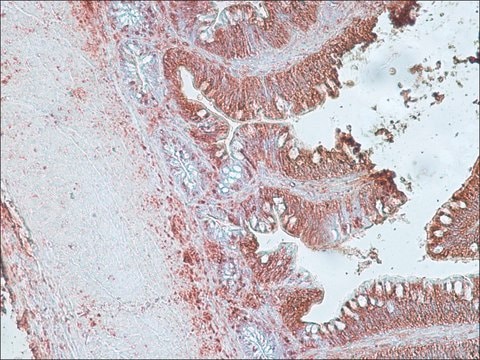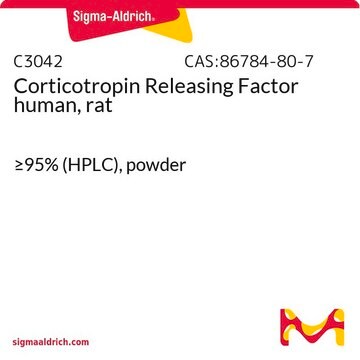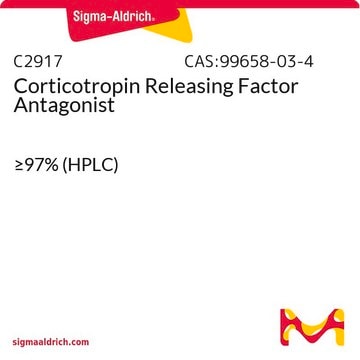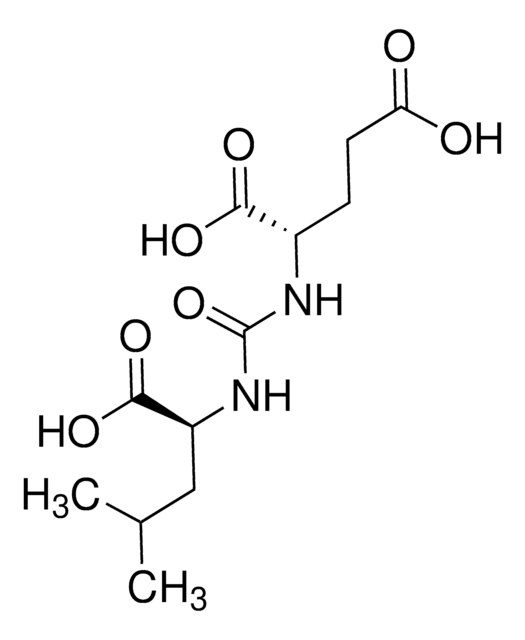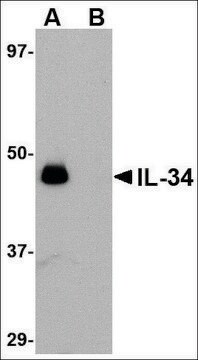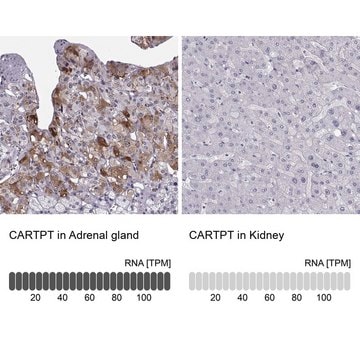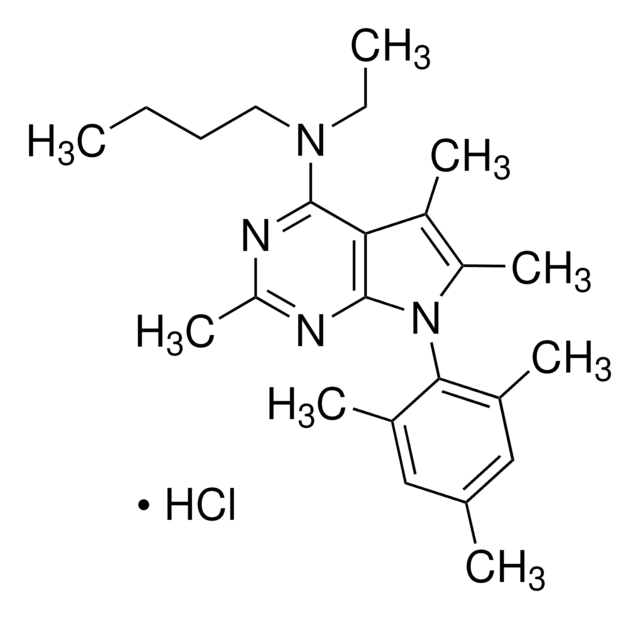U4757
Anti-Urocortin antibody produced in rabbit
IgG fraction of antiserum, buffered aqueous solution
About This Item
Recommended Products
biological source
rabbit
conjugate
unconjugated
antibody form
IgG fraction of antiserum
antibody product type
primary antibodies
clone
polyclonal
form
buffered aqueous solution
species reactivity
rat, human
technique(s)
immunohistochemistry (formalin-fixed, paraffin-embedded sections): 1:200 using microwave-treated sections of human placental tissue
quantitative precipitin assay: 1:10,000 using 125I-Tyr0-Urocortin (rat)
UniProt accession no.
shipped in
dry ice
storage temp.
−20°C
target post-translational modification
unmodified
Gene Information
human ... UCN(7349)
rat ... Ucn(29151)
General description
Specificity
Immunogen
Application
- radioimmunoassay (RIA)
- immunohistochemistry
- immunocytochemistry
Biochem/physiol Actions
Physical form
Disclaimer
Not finding the right product?
Try our Product Selector Tool.
Storage Class
10 - Combustible liquids
wgk_germany
nwg
flash_point_f
Not applicable
flash_point_c
Not applicable
Certificates of Analysis (COA)
Search for Certificates of Analysis (COA) by entering the products Lot/Batch Number. Lot and Batch Numbers can be found on a product’s label following the words ‘Lot’ or ‘Batch’.
Already Own This Product?
Find documentation for the products that you have recently purchased in the Document Library.
Our team of scientists has experience in all areas of research including Life Science, Material Science, Chemical Synthesis, Chromatography, Analytical and many others.
Contact Technical Service